Local Autonomy and Energy Law Symposium
February 21, 2020
FSU College of Law, Room 208
Local Autonomy and Energy Law Symposium
The United States is undergoing a rapid energy transition. State and local clean-energy and carbon policies, and declining renewable energy costs are driving expansive, rapid development of solar and wind farms and associated transmission lines. The United States continues to be a world leader in oil and natural gas production due to drilling and hydraulic fracturing in shale formations. This has caused thousands of new wells to be drilled and has triggered the construction of new pipelines and export terminals, often in close proximity to human populations. Setting aside the question of environmental and other social costs, these trends have very positive economic effects, but local governments and their residents experience the brunt of the negative impacts in the form of increased truck traffic and road damage, noise, dust and air pollution during construction, aesthetic changes and many other externalities. Despite this concentration of impacts at the local level, state governments increasingly preempt local governments’ abilities to address these impacts through regulation or other tools. This symposium will explore the decline of local autonomy, both generally and in the area of energy law, and potential paths forward.
There will be a $50 CLE registration fee to attend in person. Registration is free for FSU faculty members and students.
A light breakfast, lunch and snacks will be provided.
Approved for 5 CLE credits. Course reference number 2000821N.
CLE PARTICIPANTS–REGISTER HERE
FACULTY & STUDENTS–REGISTER HERE
KEYNOTE SPEAKER
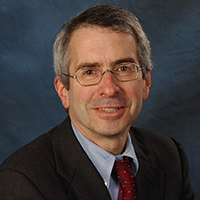
Richard Briffault
Joseph P. Chamberlain Professor of Legislation, Columbia Law School
Richard Briffault's research, writing and teaching focus on state and local government law, legislation, the law of the political process, government ethics and property. He is co-author of the textbook, State and Local Government Law, (8th edition, 2016), principal author of “Dollars and Democracy: A Blueprint for Campaign Finance Reform,” a report of the New York City Bar Association’s commission on campaign finance reform, and author of Balancing Acts: The Reality Behind State Balanced Budget Requirements (Twentieth Century Fund Press 1996). He has also written more than 75 law review articles. In 2014, Briffault was appointed chair of the Conflicts of Interest Board of New York City. He was a member of New York State’s Moreland Act Commission to Investigate Public Corruption from 2013 to 2014, and has served as a member of, or consultant to, several city and state commissions in New York dealing with state and local governance, including the New York State Commission on Local Government Efficiency & Competitiveness (2007-2008), the Temporary New York Commission on Constitutional Revision (1993-1995), the New York City Real Property Tax Reform Commission (1993) and the New York City Charter Revision Commission (1987-1989). He is currently the reporter for the American Law Institute's project on principles of government ethics and is vice-chair of Citizens Union of the City of New York. Briffault joined the Columbia Law School faculty in 1983. He received his J.D. from Harvard University and his B.A. from Columbia University.
PARTICIPANTS
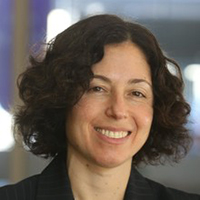
Alexandra Klass
Distinguished McKnight University Professor, University of Minnesota Law School
Alexandra B. Klass teaches and writes in the areas of energy law, environmental law, natural resources law, tort law and property law. Her recent scholarly work addresses regulatory challenges to integrating more renewable energy into the nation’s electric grid, transportation electrification, oil and gas transportation infrastructure and the use of eminent domain for electric transmission lines and pipelines. She is a co-author of Energy Law: Concepts and Insights Series (Foundation Press 2017), Energy Law and Policy (2d ed. West Academic Publishing 2018), Natural Resources Law: A Place-Based Book of Problems and Cases (4th ed. Wolters Kluwer, 2018) and The Practice and Policy of Environmental Law (4th ed. Foundation Press, 2017). Professor Klass was named the Stanley V. Kinyon Teacher of the Year for 2009-2010, and she served as associate dean for academic affairs from 2010-2012. She was a visiting professor of law at Harvard Law School in 2015 and at Uppsala University in Sweden in 2019. She previously was the Julius E. Davis professor of law and the Solly Robins distinguished research fellow. Prior to her teaching career, Klass was a partner at Dorsey & Whitney LLP in Minneapolis, where she specialized in environmental law, natural resources and land use matters. Klass has served in leadership positions in state and national bar organizations and nonprofits. She serves on the board of directors of the Minnesota Center for Environmental Advocacy and chairs the group’s legal committee. She was a member of the governing council of the Environmental and Natural Resources Section of the Minnesota State Bar Association from 2005-2013, was a member of the board of directors of the Minnesota Chapter of the Federal Bar Association from 2001-2011 and served as co-chair of the environmental law section of the Hennepin County Bar Association from 2000-2006. She is a member scholar at the Center for Progressive Reform and a fellow at the University of Minnesota’s Institute on the Environment.
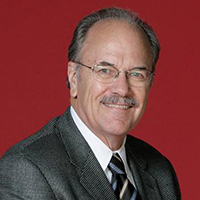
John Nolon
Distinguished Professor of Law, Pace University Elisabeth Haub School of Law
John R. Nolon is a distinguished professor of law at the Elisabeth Haub School of Law at Pace University, where he teaches property, land use, dispute resolution and sustainable development law courses. He also is counsel to the law school's Land Use Law Center, which he founded in 1993. He served as adjunct professor of land use law and policy at the Yale School of Forestry and Environmental Studies from 2001-2016. Nolon was named one of two distinguished professors in 2014 by Pace University. He received the Richard L. Ottinger Faculty Achievement Award in 1999, won the Goettel Prize for Faculty Scholarship in 2006, was named Outstanding Teacher of the Year for 2016-2017 and was awarded the National Leadership Award for a Planning Advocate by the American Planning Association in 2009. The International City/County Management Association presented its Honorary Membership Award to Nolon in 2014 for exemplary service to local government, and the NY Planning Federation presented him its Lifetime Achievement Award in 2018. He is on the advisory boards of the Sustainable Development Code, the NY Planning Federation and the Westchester/Fairfield chapter of the Urban Land Institute. He served as a consultant to President Carter's Council on Development Choices for the 1980s, President Clinton's Council on Sustainable Development, New York Governor George Pataki's Transition Team and Governor Elliot Spitzer’s Transition Team. He is a member of the editorial board of The Land Use and Environmental Law Review, published by Thomson-West, and of the State and Local Government eJournal of the American Bar Association. Professor Nolon received a Fulbright Scholarship to study sustainable development law in Argentina in 1994-1995.

Ashira Ostrow
Peter S. Kalikow Distinguished Professor of Real Estate and Land Use Law, Hofstra University Maurice A. Deane School of Law
Before joining the Hofstra faculty in January 2007, Ashira Ostrow worked as a real estate attorney in Davis Polk’s corporate department. Her practice included the representation of real estate investment funds, lenders, borrowers, landlords and tenants in sophisticated commercial real estate transactions. Ostrow teaches courses in property, land use law, real estate transactions and state and local government law. Her research focuses on land use and local governance, with an emphasis on the interaction between federal law and local land use policies. Ostrow also teaches Representing Health Care Providers in Hofstra Law’s online health law and policy programs. Her articles have been published in a wide variety of journals, including the Yale Law Journal, Indiana Law Review, Emory Law Journal, Florida Law Review and Harvard Journal on Legislation. Ostrow has received a number of awards and honors for her scholarship. In particular, she was selected for participation in the Harvard/Stanford/Yale Junior Faculty Forum, was awarded Hofstra University’s Lawrence A. Stessin Prize for Outstanding Scholarly Publication and won the American Association of Law Schools' Scholarly Paper Competition. She earned her B.A. from the University of Pennsylvania and her J.D. from Columbia Law School.
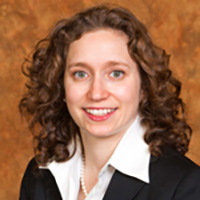
Erin Scharff
Associate Professor of Law, Arizona State University Sandra Day O'Connor College of Law
Erin Adele Scharff writes about tax federalism, state and local taxation and local government law. Her work has appeared or is forthcoming in the Georgetown Law Journal, the NYU Law Review, Stanford Law Review and Tax Law Review, among other publications. Prior to joining the faculty of the Sandra Day O'Connor College of Law at Arizona State University, Scharff was an acting assistant professor of tax law at New York University School of Law. After graduating magna cum laude from New York University School of Law, she clerked for the Honorable William A. Fletcher of the U.S. Court of Appeals for the Ninth Circuit in San Francisco.
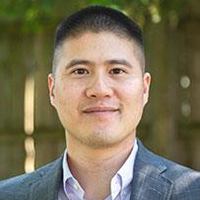
Rick Su
Professor of Law, University of North Carolina School of Law
Rick Su teaches and writes in the areas of local government law, immigration and federalism. His research focuses on the intersection between cities and immigration. His work has appeared in the Columbia Law Review, the William & Mary Law Review, the University of Pennsylvania Journal of Constitutional Law and the North Carolina Law Review. Su received his B.A. from Dartmouth College in 2001 and his J.D. from Harvard Law School in 2004. After graduating from law school, he clerked for the Honorable Stephen Reinhardt on the Ninth Circuit Court of Appeals and worked at the U.S. Department of Housing and Urban Development. Prior to joining the Carolina Law faculty in 2019, Su taught at the University at Buffalo School of Law, where he won the faculty teaching award in 2009 and 2015. He was a visiting professor at Harvard Law School in 2015 and at Washington University in St. Louis School of Law in 2018.
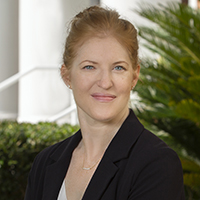
Sarah Swan
Assistant Professor, Florida State University College of Law
Sarah Swan teaches in the areas of torts, criminal law, family law and local government law. Her scholarship focuses on the role of third parties in preventing, causing and remedying harms, and the related issues of complicity, rights of association and relational duties that circulate around those questions. Her publications include articles in the Duke Law Journal, UCLA Law Review, Vanderbilt Law Review and Wisconsin Law Review. Before joining FSU Law, Swan was a fellow and lecturer at Columbia Law School. She previously practiced as a litigation associate for several years, specializing in the areas of insurance and commercial litigation, and she served as a judicial law clerk for the British Columbia Supreme Court.
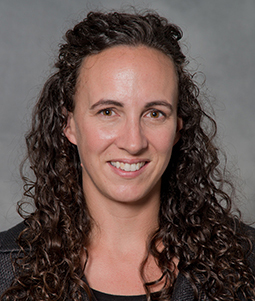
Shelley Welton
Visiting Professor, Stanford University
Assistant Professor, University of South Carolina School of Law
Shelley Welton is a visiting professor at Stanford University and assistant professor at the University of South Carolina School of Law. Her research focuses on how climate change is transforming energy and environmental law and governance. Her scholarship has appeared or is forthcoming in the Columbia Law Review, Michigan Law Review, New York University Law Review, University of Colorado Law Review and Harvard Environmental Law Review. At the University of South Carolina, she teaches Administrative Law, Energy Law, Environmental Law and Policy, and Climate Change Law. Prior to academia, Welton worked as the deputy director of Columbia Law School's Sabin Center for Climate Change Law. She also clerked for Judge David Trager of the Eastern District of New York and Judge Allyson Duncan of the Fourth Circuit. She received a Ph.D. in law from Yale Law School, a J.D. from NYU School of Law, a master's of public administration in environmental science and policy from Columbia University's School of International and Public Affairs and a B.A. from the University of North Carolina at Chapel Hill.

Michael Wolf
Richard E. Nelson Eminent Scholar Chair in Local Government Law, University of Florida, Levin College of Law
Michael Allan Wolf joined the faculty of the University of Florida Levin College of Law in August 2003, as the first occupant of the Richard E. Nelson chair in local government law. Wolf has been teaching and writing for more than three decades in the areas of land-use planning, property, local government, constitutional, environmental and urban revitalization law, and legal and constitutional history. He earned his B.A. from Emory University, his J.D. from the Georgetown University Law Center, and both his A.M. in history and Ph.D. in history of American civilization from Harvard University. Wolf, who previously was a professor of law and history at the University of Richmond, held his first law teaching appointment at Oklahoma City University and has also served as a visiting professor at the University of Richmond and American University. Since 2000, Wolf has been the general editor of Powell on Real Property (17 volumes), the most prominent treatise in the area that is regularly cited by state and federal courts. Other recent books include Land Use Law (with Daniel R. Mandelker, 2015), The Supreme Court and the Environment: The Reluctant Protector (2012), Land Use Planning and the Environment: A Casebook (with Charles M. Haar, 2010), Powell on Real Property: Michael Allan Wolf Desk Edition (a one-volume abridgement of the treatise, 2009), The Zoning of America: Euclid v. Ambler (2008), and Strategies for Environmental Success in an Uncertain Judicial Climate (editor and contributor, 2005). His writings have also appeared in a wide variety of law and law-related journals–including the Harvard Law Review, Michigan Law Review and Fordham Law Review–many of which were contributions to symposia on topics in land-use regulation, environmental law, eminent domain and regulatory takings. His commentaries have been featured in national newspapers and on National Public Radio.

